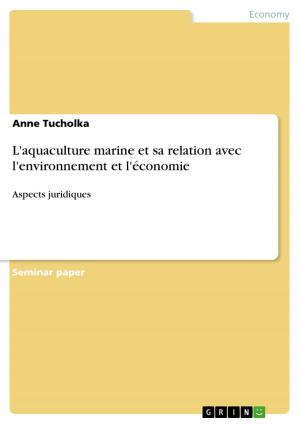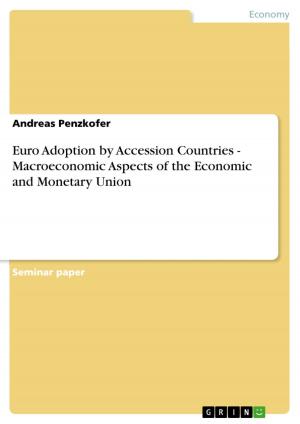What makes Berlin a so-called 'world' city?
Nonfiction, Social & Cultural Studies, Social Science, Human Geography| Author: | Johannes Weber | ISBN: | 9783638622950 |
| Publisher: | GRIN Publishing | Publication: | March 8, 2007 |
| Imprint: | GRIN Publishing | Language: | English |
| Author: | Johannes Weber |
| ISBN: | 9783638622950 |
| Publisher: | GRIN Publishing |
| Publication: | March 8, 2007 |
| Imprint: | GRIN Publishing |
| Language: | English |
Seminar paper from the year 2004 in the subject Geography / Earth Science - Regional Geography, grade: 1,3, University of Hull, course: Free elective course work What makes Berlin a so-called 'world city'?, 18 entries in the bibliography, language: English, abstract: Within the last centuries, the whole planet stood out by several phases of population growth. Due to that exponential growth in general and the fact that people tend to settle down in bigger urban areas, it is also due to historic and especially economic developments. Hence, the agglomerations in big cities meant and still mean for particular countries special centres, which are characterised by demographic and functional primacy in comparison to other national and international cities. However, and very important for analysing a metropolis, is the fact that the increasing globalisation led to an enlargement of the cruising range of a city towards the developing hinterlands as the 'globalization has had dramatic effects on the working of urban systems' (Cochrane and Jonas, 1999, 145). Characteristics of such cities, which are of high significance for concerned countries and the global world, have been discussed differently by several authors and associations in the past and some of them will be mentioned in this work. To what extent Berlin can be seen as a so-called world city, requires answering several questions. First of all it is vital to define the term 'world city' in order to be able to rank special cities like Berlin in the entire network of global cities. Secondly, it is important to find out, whether Berlin is nowadays, in comparison to previous periods, more or less globally important. Thirdly, there is the question of what sets Berlin apart from other European and international urban centres. Is it its position as the German capital, its importance as economical place or are there any historic and cultural features that make the city a global one? Also, the capital in its size according to population, its growth and its density and the area is important to look at because this statistical data is very useful to measure cities like Berlin and compare it with other global players within the city network. Finally, taking all the answers of the set questions into consideration, there will be a conclusion which explains whether Berlin can be regarded as a global city and which describes the future challenges the German capital will have to face if it wants to maintain its potential position as one of the leading cities in Europe.
Seminar paper from the year 2004 in the subject Geography / Earth Science - Regional Geography, grade: 1,3, University of Hull, course: Free elective course work What makes Berlin a so-called 'world city'?, 18 entries in the bibliography, language: English, abstract: Within the last centuries, the whole planet stood out by several phases of population growth. Due to that exponential growth in general and the fact that people tend to settle down in bigger urban areas, it is also due to historic and especially economic developments. Hence, the agglomerations in big cities meant and still mean for particular countries special centres, which are characterised by demographic and functional primacy in comparison to other national and international cities. However, and very important for analysing a metropolis, is the fact that the increasing globalisation led to an enlargement of the cruising range of a city towards the developing hinterlands as the 'globalization has had dramatic effects on the working of urban systems' (Cochrane and Jonas, 1999, 145). Characteristics of such cities, which are of high significance for concerned countries and the global world, have been discussed differently by several authors and associations in the past and some of them will be mentioned in this work. To what extent Berlin can be seen as a so-called world city, requires answering several questions. First of all it is vital to define the term 'world city' in order to be able to rank special cities like Berlin in the entire network of global cities. Secondly, it is important to find out, whether Berlin is nowadays, in comparison to previous periods, more or less globally important. Thirdly, there is the question of what sets Berlin apart from other European and international urban centres. Is it its position as the German capital, its importance as economical place or are there any historic and cultural features that make the city a global one? Also, the capital in its size according to population, its growth and its density and the area is important to look at because this statistical data is very useful to measure cities like Berlin and compare it with other global players within the city network. Finally, taking all the answers of the set questions into consideration, there will be a conclusion which explains whether Berlin can be regarded as a global city and which describes the future challenges the German capital will have to face if it wants to maintain its potential position as one of the leading cities in Europe.















